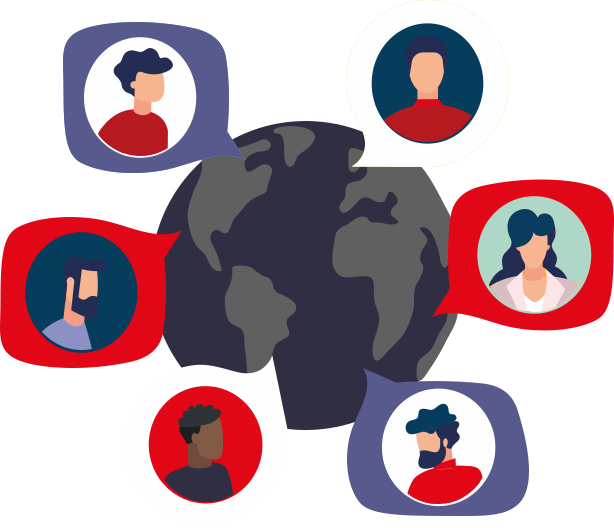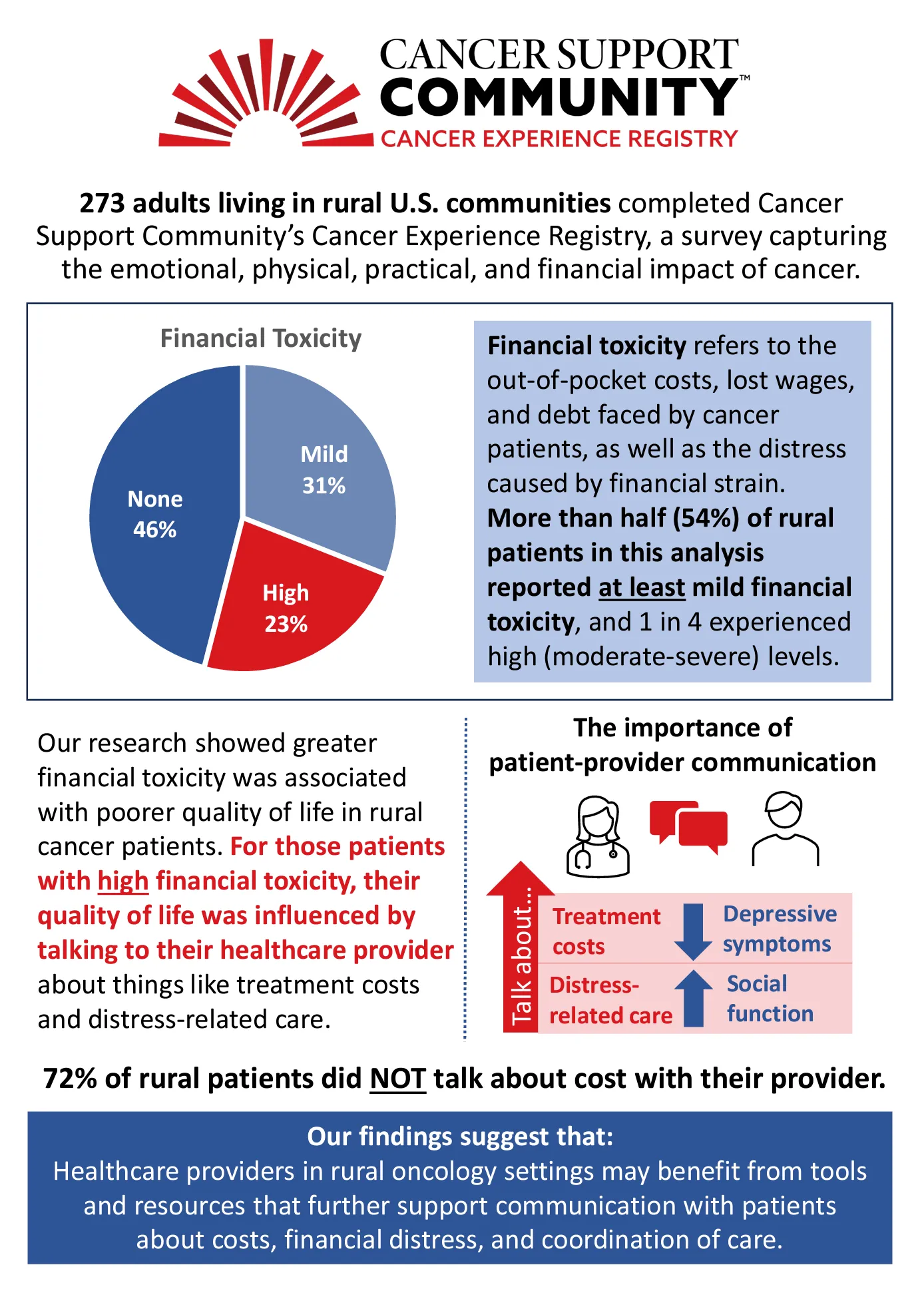
Publications & Presentations
The Cancer Support Community is a leader in research on the patient, survivor, and caregiver experience. Our work appears in posters and presentations shared at professional conferences, published articles in preeminent peer-reviewed journals, educational materials for patients and caregivers, and comprehensive research reports to help inform cancer care and patient advocacy.

Use the search filters below to discover our research findings on diverse topics related to patient and caregiver quality of life, including:
- Psychosocial well-being and symptom management
- Patient-provider communication
- Treatment options
- Patient advocacy
- Financial toxicity and other barriers to health equity
- Experiences and perspectives on precision medicine
The Cancer Support Community (CSC), in partnership with Equiva Health, created the MyCancerSupport (MCS) mobile app to expand access to vital cancer support and services to medically underserved communities – when and where they need it. MCS aims to break down barriers to healthcare access by closing the digital gap and equipping patients and caregivers with the essential tools and resources they need to stay well-informed and actively participate in their cancer care.
In this study, digital health technologies (DHT) were used to measure what is meaningful to people with cancer-related cachexia when it comes to physical activity. Most participants (96%) felt that the ability to do light physical activity for even a few minutes, compared to no physical activity, was meaningful. This study showed that DHTs can be a useful tool for healthcare providers to monitor changes in physical activities that matter most to patients.
Patients with advanced ovarian cancer often experience sleep disturbance and fatigue, which can negatively impact their daily lives. This study interviewed 20 patients with advanced ovarian cancer to understand how their sleep disturbance and fatigue changed throughout their treatment. Patients experienced intense sleep disturbance and fatigue that worsened their quality of life, including their mental and physical health. However, patients experienced different types of sleep and fatigue issues while receiving treatment, and symptoms were worst during chemotherapy. Many were unsatisfied with their healthcare providers' communication about sleep and fatigue issues, highlighting the need for better screening and supportive care during treatment.
Non-small cell lung cancer (NSCLC), which comprises 85% of cases, is aggressive, often diagnosed late, and associated with significant symptom burden, and poor health-related quality of life (HRQoL), as well as poor prognosis. This study aims to assess the role metastatic status and treatment history play in HRQoL among NSCLC patients.
As technology continues to become a prominent tool in health care, there is a growing need to increase documentation of patients' perceptions and opinions on using artificial intelligence (AI) and technology in their cancer care. This aim of this study was to understand patients' experiences with AI and technology and highlight their thoughts on incorporating AI and technology in their cancer treatment.
Cancer patients and survivors frequently struggle with chronic pain. Previous research demonstrates that American Indian/Alaska Native (AI/AN) patients may experience higher pain burden than non-Hispanic White (NHW) patients, but cultural beliefs make it difficult to discuss pain and illness. The aim of the study was to assess the burden in, and explore the facets, of pain interference among AI/AN and NHW cancer patients and survivors.
